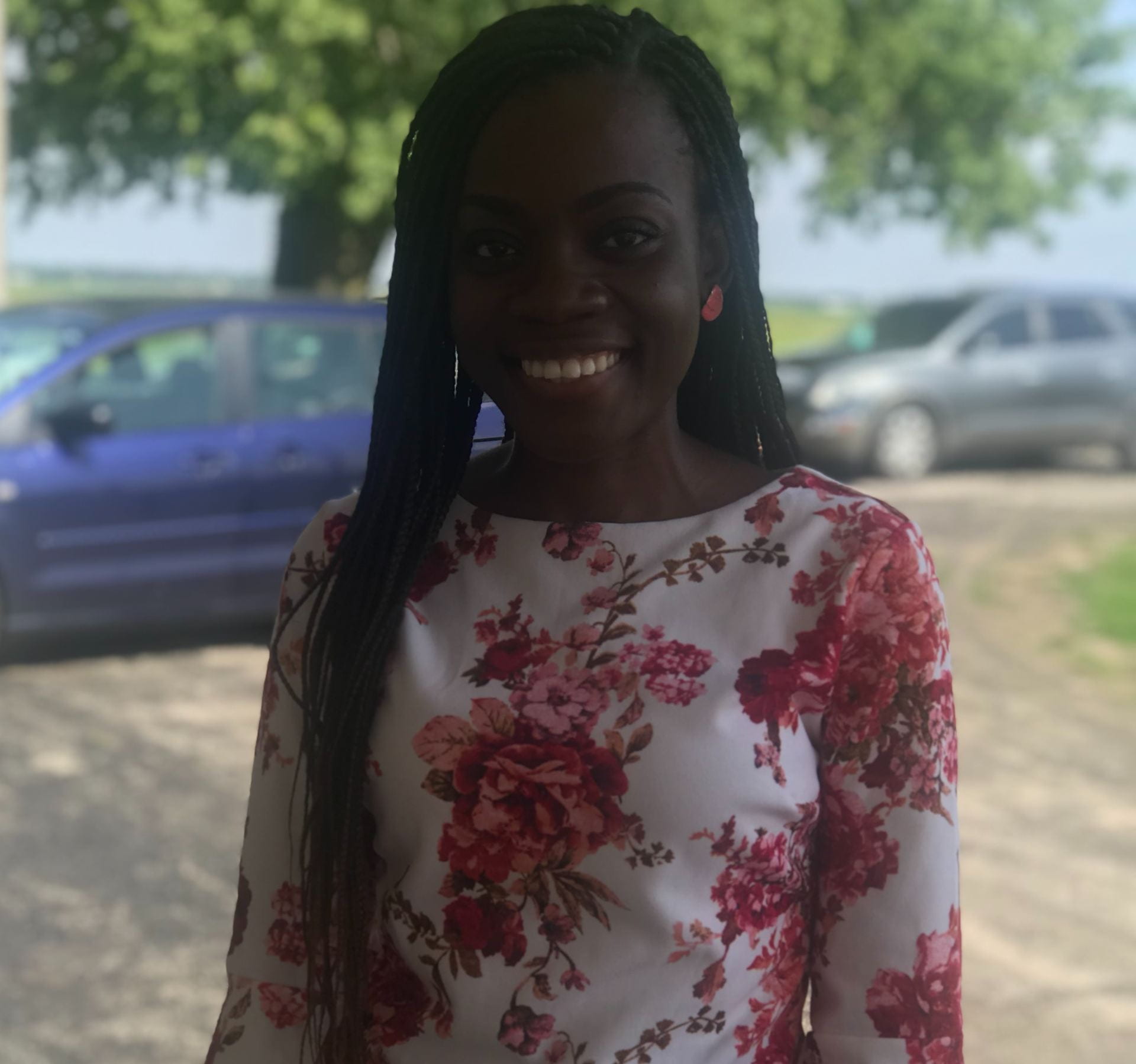This week we are spotlighting, Abigaelle Ngamboma, a second-year student at UMass School of Law. Ngamboma is from Illinois and graduated from Illinois State University with her bachelor’s degree in political science.
She is currently working on a paper focusing on felon voting rights and the constitutionality of laws that prohibit it. Felons are people convicted of a felony, which is punishable by a term in state or federal prison or in some cases the death penalty.
“This topic sparked my interest because of a then-pending case in Florida that required nonincarcerated people with felony records to pay fines, fees, and restitution before voting,” Ngamboma says. “I thought that the further incapacitation of the political voice of people who have served their prison sentence created a probably constitutional or democratic issue. The case was brought to court about two months before the 2020 presidential elections and it created a big uproar from people who previously thought that their right to vote was permanently restored. Turns out that Florida changed whether felons could vote two months before the election, so you can imagine the frustration.”

The case has since been settled with the court ruling in favor of requiring fines and restitution fees for felons to restore their right to vote. Many Americans have criticized the Florida decision, likening to a poll tax since felons must pay to restore their voting rights. Many of them may not be able to afford to do so, even though they already served their prison time.
“The right to vote is not inscribed in the U.S. Constitution,” Ngamboma says. “So states have the power to determine who gets to vote in their state. While there are various policies applied throughout different states, some states have laws that have resulted in increased stigmatization of non-incarcerated felons and further punishment to the point of permanent incapacitation. This is especially problematic because most of the disenfranchised population are nonincarcerated and live in their communities with completed sentences or under parole or probation. Proponents of laws against felon voting rights argue that people who intentionally commit crimes forfeit their right to their representatives, and others argue that these laws keep away those who may engage in voter fraud.”
Ngamboma believes that allowing felons to vote will bring positive change for both the felons themselves and our democracy as a whole. “I argue that allowing persons formerly incarcerated for felonies to vote will increase the population of rehabilitated citizens who can participate in the democratic system,” she says. “Rather than permanent disenfranchisement or conditioning the right to vote on payment of fees, the right to vote should be automatically restored upon the release of persons with nonviolent felony records, and those convicted with violent felonies should receive the right to vote after a statutorily set time.”
Since voting rights are handled on a state by state basis, there have been difficulties in reaching a nationwide consensus on felon voting rights. Ngamboma says, “Many of the constitutional arguments against laws that prohibit felon voting rights have been unsuccessful in state courts and The Supreme Court. This means that any resolution is going to have to come from the states, and it is a little challenging finding a solution that would benefit most states, the non-incarcerated felons, and victims who suffered harm from the crimes committed. The Voting Rights Act has had more success in arguing against such laws since these laws disproportionately affect Black and Latino Americans. Yet, “more success” does not mean that it is actually successful in courts.”
After she graduates, Ngamboma plans to work in a Federal Department or an administrative position with a focus on human rights.
She expects to graduate in May of 2022. When Ngamboma isn’t studying law she enjoys traveling to other countries and experimenting with interior design. “I love decorating and paying special attention to detail whenever I am rearranging a space. I also like the ability to create different aesthetic experiences wherever I live!”
